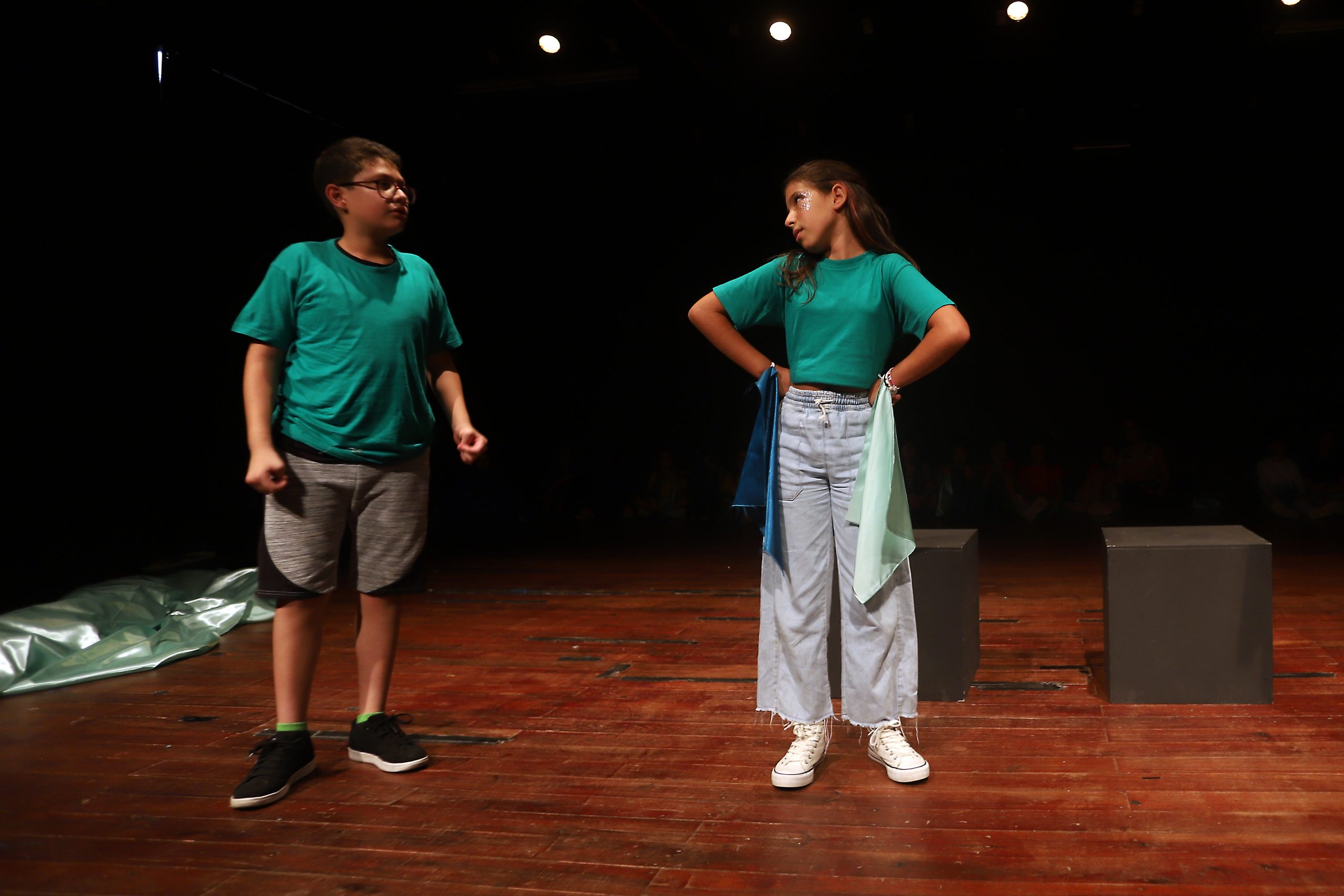Os rios e ribeiros são não só uma fonte de água, mas também complexos ecossistemas ladeados de uma densa vegetação (os corredores ripícolas) onde vivem diversos organismos terrestres e aquáticos, como aves, mamíferos, anfíbios e répteis, peixes, invertebrados, algas e plantas aquáticas.
+INFO
TEUC (Teatro dos Estudantes da Universidade de Coimbra) | Coimbra
24 de setembr de 2022 | 15h00 e 16h00
Classificação etária | M/6
Duração | 30 minutos
Bilhetes | Entrada gratuita
ESTREIA:
Coimbra | Escola EB1 da Solum
30 de junho de 2022
Folha de Sala
Em Portugal, a maioria da população vive em zonas urbanas e quase todas as cidades se desenvolveram à volta de rios. Os rios das cidades, chamados rios urbanos, e os seus corredores ripícolas, podem fornecer importantes serviços às populações humanas, tais como: ajudarem a manter a temperatura e a humidade do ar contribuindo para minorar o efeito de extremos de temperatura e das alterações climáticas; mitigarem as cheias urbanas; contribuírem para a melhoria da qualidade do ar e para o sequestro de carbono e diminuição do efeito estufa; melhorarem o aspeto das cidades; constituírem zonas verdes naturais que podem ser usadas para atividades de lazer e desportivas melhorando a saúde humana; e constituem reservas de biodiversidade podendo ainda ser usadas por espécies em migração como algumas aves.
No entanto, o desenvolvimento urbano tem tido um elevado custo para os rios e ribeiros urbanos que foram artificializados, canalizados, poluídos ou soterrados ao longo do tempo. Consequentemente, os seus ecossistemas foram amplamente degradados e os serviços que poderiam prestar estão grandemente comprometidos.
É por isso urgente recuperar os rios e ribeiros urbanos e os seus ecossistemas. Esta é uma prioridade a nível europeu, que se enquadra no conceito mais amplo de devolver a natureza às cidades e nos Objetivos para o Desenvolvimento Sustentável das Nações Unidas.
A implementação de medidas para recuperar os rios urbanos e tornar as cidades em sistemas mais naturais, está dependente não só do conhecimento científico, mas também do reconhecimento dessa necessidade pela população e pelos decisores políticos, e da sua participação ativa nesse processo.
Por isso o projeto CRESCERIO, foi desenvolvido entre 2018 e 2022 com uma turma-piloto da Escola Básica da Solum com os objetivos principais de:
• Dar a conhecer os ecossistemas ribeirinhos, em particular os ribeiros urbanos da cidade de Coimbra, à comunidade escolar (crianças, professores, pais, outros) e fomentar o contacto das crianças com a natureza;
• Dar a conhecer a biodiversidade dos ribeiros urbanos e analisar as suas ameaças principais;
• Fomentar o contacto com atividades científicas relacionadas com a avaliação ecológica dos rios (desde amostragem da fauna e flora no campo à identificação dos organismos com instrumentos óticos científicos e cálculos de índices de qualidade);
• Desenvolver a responsabilidade social pela preservação e recuperação dos rios urbanos e dos seus ecossistemas através da comunidade escolar.
Direção artística e encenação Mário Montenegro
Assistência de Encenação Carolina Andrade, Vicente Paredes
Texto Carolina Andrade, Mário Montenegro, Vicente Paredes
Interpretação Alunos do 4º C da Escola Básica da Solum | Professora Maria Alda Alves
“O Homem que Lixava Tudo”
Manel, João Videira | Rita, Guiliana Valentim | Gustavo, João Vasco | Homem, Rafael Ferreira
“Uma Floresta Assim-Assim e Uma Fada Assim-Assim”
Helena, Mariana Pinto | Maria, Beatriz Sá | Pedro, João Brito
“O Jogo dos Rios”
Menina 1, Maria Leonor | Menina 2, Rita Figueiredo | João, Thiago Diaz
“Um Agricultor, Uma Cientista, Um Pescador e Uma Fada Encontram-se Junto a um Rio”
Agricultor, Bernardo Machado | Pescador, Tarik Augusto | Cientista, Beatriz Vasa | Fada, Joana Moita
“A Fabulosa História do Crocodilo que Não o Era”
1, Samira Ferreira | 2, Diana Tavares | 3, Diana Marques | 4, Bernardo Gama
“Lágrimas de Rio”
Fáfá, Maria Amaral | Zézé, Carolina Montenegro | Rio, Miriam Guerreiro | Rodapé, Diogo Monteirinho | Espectadora, Tatiana Tavares
Figurinos Laura Corga
Cenografia e Imagem Pedro Andrade
Direção de Produção Francisca Moreira
Assistência de Produção Carolina Andrade, Vicente Paredes
Comunicação Carolina Andrade
Fotografia de Cena Francisca Moreira
Parceiros do projeto
Universidade de Coimbra, MARE – Centro de Ciências do Mar e do Ambiente, Departamento de Ciências da Vida, FCTUC
Universidade de Coimbra, CEIS20 – Centro de Estudos Interdisciplinares
Universidade de Aveiro, Dept. de Biologia
Marionet
PROAQUA – Associação para a Promoção do Conhecimento em Ecologia Aquática
Apoio
República Portuguesa – Cultura / Direção Geral das Artes
Câmara Municipal de Coimbra
Universidade de Coimbra
Agrupamento de Escolas Eugénio de Castro
- Projetos
- CresceRio
- Clipping
- Alunos da EB Solum levam histórias do rio ao palco [Diário de Coimbra]
- Alunos da Solum levam natureza para o palco [Diário As Beiras]
- Coimbra: Alunos da Escola Básica da Solum apresentam espetáculo “Histórias de um rio” [Notícias de Coimbra]
- Crianças das cidades desconhecem ecossistemas aquáticos e a sua biodiversidade [Público]
- Crianças urbanas aparentam medo de contacto com a natureza, revela estudo [Ambiente Magazine]
- Crianças urbanas têm grande desconhecimento de ecossistemas aquáticos e biodiversidade [PTJornal]



